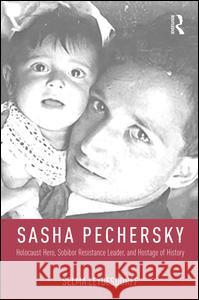Sasha Pechersky: Holocaust Hero, Sobibor Resistance Leader, and Hostage of History » książka
Sasha Pechersky: Holocaust Hero, Sobibor Resistance Leader, and Hostage of History
ISBN-13: 9781412865258 / Angielski / Twarda / 2017 / 304 str.
Sasha Pechersky: Holocaust Hero, Sobibor Resistance Leader, and Hostage of History
ISBN-13: 9781412865258 / Angielski / Twarda / 2017 / 304 str.
(netto: 666,90 VAT: 5%)
Najniższa cena z 30 dni: 654,86 zł
ok. 16-18 dni roboczych.
Darmowa dostawa!
On October 14, 1943 Aleksandr -Sasha- Pechersky led a mass escape of inmates from Sobibor, a Nazi death camp in Poland. Despite leading the only successful prisoner revolt at a World War II death camp, Pechersky never received the public recognition he deserved in the East. This story of a forgotten hero reveals the tremendous difference in the memorial cultures between Western and Eastern societies and also how Jews were not passive in the face of German violence. Pechersky, along with other Russian and Jewish inmates who had been prisoners of the Nazis, was considered suspect by the Russian government simply because he survived. He was sent to the front in a Red Army penal battalion fighting the Nazis. After the war, Pechersky was not recognized as a hero. On the contrary, he was arrested during the Stalinist anti-cosmopolitan campaign (1948-53) and he died in poverty, social isolation, and despair. Selma Leydesdorff describes the official silence in the Eastern bloc about Pechersky's role in the Sobibor escape and how people slowly came to know truth. The narrative is partly based on eyewitness accounts from people in Pechersky's life, thusly restoring the memory of a hero who was officially forgotten and assessing the collisions of collective memory held by the East and the West. Specifically, she critiques the ideological refusal of Eastern societies to acknowledge the suffering of Jews at Sobibor.











